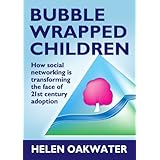I’m despondent. Not because of my recent first hand experience of cyber nastiness, but because the prospects of having any real debate, and of finding new ways to improve the lot of children and parents caught up in the family justice system are receding ever further into the distance. Or so it seems. There are moments when it seems as if we are communicating, learning, listening. But they always seem to be fleeting. And almost in the same breath that something sensible is said somebody gets ornery.
There is a lot wrong with the system, notwithstanding the efforts of those who work within it to make the best of limited resources in the face of hostility from government, press and large chunks of the public. It is right that the system should be criticized and it is right that those within the system should hear that criticism. We can learn from it.
But we can’t do that by shouting at one another and by engaging in endless circular “discussions” about how “I’m right” and “you’re wrong”. That’s a waste of everyone’s energy and a source of yet more frustration – for practitioners who feel under fire, and for fathers (and mothers) who feel they have been ignored and done over by a failing system.
No, what we NEED is dialogue, not a playing out of competing cases in adversarial style. It’s like an intractable contact dispute. Neither side really wants to engage. It’s all about their issues and not a lot about seeing it from the perspective of the other. It’s all about blaming the mendacious, malicious other side. Neither can conceive that the other could be motivated by anything but selfishness. Sound familiar?
And so. There are two separate conversations going on – the one amongst professionals: how can we make things work better, cut delay, focus on the needs of children, divert cases from court etc? And the one amongst the disgruntled public, mainly fathers: how can we make them listen? How can we expose the system for what it is?
But actually, what we desperately need is to pool our knowledge, skill and experience.
The blame does not lie with one side. It lies with both.


